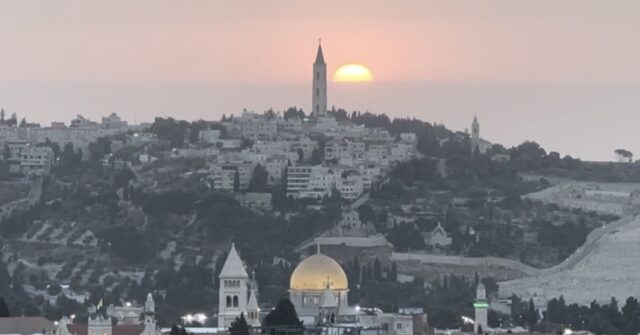Yom Kippur, known as the Day of Atonement, holds significant importance for Israelis and Jews globally. Observed from sundown on October 11 to nightfall on October 12, this sacred day is dedicated to the process of atonement for personal and communal sins, focusing on wrongdoings toward others and God. Spiritual reflection is central to the observance of Yom Kippur, where the act of seeking forgiveness and connectedness within the community is emphasized. The solemnity of the occasion is further heightened by the traditions surrounding it, setting a tone of reverence, reflection, and introspection among practitioners.
One of the most notable observances of Yom Kippur is the practice of fasting, a commitment that lasts for more than 24 hours. Participants abstain from eating and drinking, as well as from bathing, engaging in sexual relations, or wearing leather, which symbolizes comfort. In keeping with this day of humility and reflection, many choose to wear white, symbolizing purity and spiritual renewal. The fasting and other prohibitions are designed to shift focus away from physical needs, directing attention towards spiritual growth and repentance. This day of fasting is not just about abstaining from physical nourishment; it also encourages individuals to engage in deep spiritual contemplation.
The prayers of Yom Kippur play a crucial role in observance during this holy time. Unlike typical days, there are five designated prayers throughout Yom Kippur, which include one prayer on Friday evening and four on Saturday—two in the morning, one in the afternoon, and one to conclude the fast. The prayers are enriched with some of the most cherished melodies from Jewish liturgy, most notably “Kol Nidrei,” which opens the observance. Through these prayers, participants connect with their faith and the larger community, reinforcing themes of repentance and healing. These liturgical elements serve as a guiding force during the day, framing the individual experiences of atonement within a collective practice.
Despite the rigorous fasting and penitence associated with Yom Kippur, the day carries an undercurrent of joy for many, symbolizing the renewal of one’s soul as the Jewish New Year begins. It is a time when the community collectively draws nearer to God, seeking reconciliation and spiritual rejuvenation. However, this joy is often mingled with a sense of somber reflection, particularly within Israel. This duality is brought into focus by historical events that cast a shadow over the observance, notably the surprise attacks on October 6, 1973, during the Yom Kippur War, and the recent tragic events around October 7, 2023.
The complexity of Yom Kippur is further emphasized when considering the broader historical context. The day is not solely a personal experience of reflection and atonement; it is deeply intertwined with Israel’s national consciousness and collective trauma. The recent terror attack and its proximity to the anniversary of a significant wartime event invokes a poignant reminder of vulnerability, loss, and the need for communal healing. As the Jewish people navigate their sacred practices, they also confront the realities of their geopolitical circumstances, leading to a more layered experience of observation.
In the midst of these reflections and the overarching themes present during Yom Kippur, there are prominent figures within the community who contribute to the dialogue. One such individual is Joel B. Pollak, who plays a significant role in media and public discourse surrounding Jewish matters. As a Senior Editor-at-Large at Breitbart News, he provides insights on contemporary issues, encapsulating the challenges and sentiments faced by the Jewish community today. Pollak’s work, including his writings on political and cultural topics, resonates within the wider context of Jewish identity and experience, linking personal atonement with broader societal narratives. His public presence serves as a reminder of the importance of dialogue and understanding in navigating the complex layers of identity and faith during significant times like Yom Kippur.

